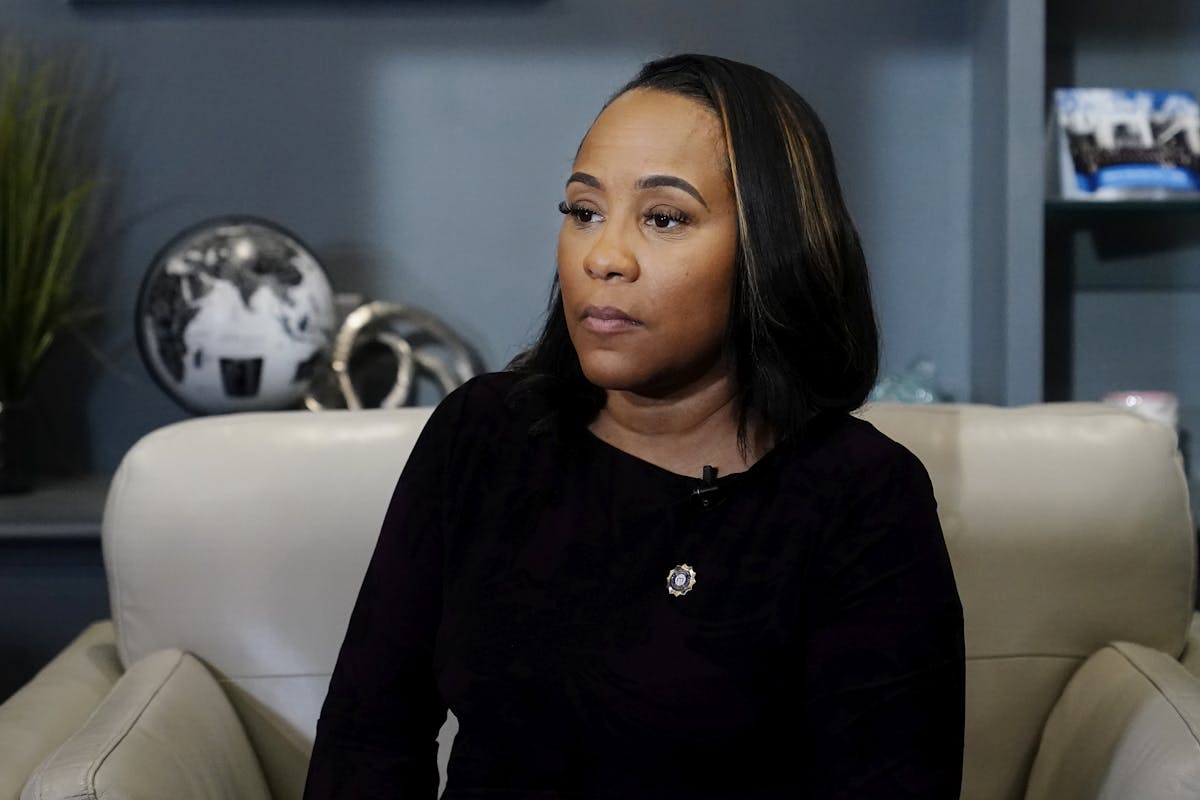Fani Willis Case Is Back on Track, as Trump’s First Amendment Defense Is Rejected in Georgia
The 45th president and his co-defendants had tried to beat their racketeering rap by invoking their right to ‘petition the Government for a redress of grievances.’

The denial by a state court judge of President Trump’s request that the racketeering rap against him be dismissed on the basis of the First Amendment means that, at least on its head, the Georgia case is on track.
Judge Scott McAfee’s ruling that “vital constitutional protections do not reach the actions and statements alleged” by the district attorney of Fulton County, Fani Willis, means that the case against Mr. Trump and 18 others for allegedly seeking to overturn the results of the 2020 election is intact.
In a statement provided to the Sun, Mr. Trump’s attorney, Steven Sadow, declared that it was “significant that the court’s ruling was without prejudice, as it made clear that defendants were not foreclosed from again raising” their First Amendment arguments at a future point in the case, when more facts are on the record.
Mr. Trump et al. had sought dismissal of Ms. Willis’s entire indictment on the basis that it violated their First Amendment right to contest the outcome of the last presidential election. The defendants also mounted a “facial” challenge to Georgia’s racketeering statute, meaning that they contended that it is unconstitutional as written.
Ms. Willis has been pursuing a creative approach to the racketeering statute, a law originally conceived to enable the prosecution of mobsters, to escalate the charges against Mr. Trump. That modus operandi is also evident in her prosecution of the rapper Young Thug, and her earlier case against a group of schoolteachers.
Regarding Mr. Trump’s First Amendment motion, the relevant part of the national parchment ordains that “Congress shall make no law … abridging the freedom of speech, or of the press; or the right of the people peaceably to assemble, and to petition the Government for a redress of grievances.” Mr. Trump resorts to the constitutional quick to argue that his activities in Georgia after the 2020 election were protected.
Judge McAfee ruled that the protections of the First Amendment do not apply because the expressions in questions “are alleged to have been made in furtherance of criminal activity.” The judge explains that the “law does not insulate speech allegedly made during fraudulent or criminal conduct.” The right to petition, he rules, “is not absolute.”
The Supreme Court, though, has held that the First Amendment protects the “right to associate for the purpose of engaging in those activities protected by the First Amendment — speech, assembly, petition for the redress of grievances, and the exercise of religion.” A Georgia court calls the constitutional clause a “broad umbrella that shelters all political points of view.”
Judge McAfee understands that “speech integral to criminal conduct, fraud, or speech presenting an imminent threat that the government can prevent” does not find shelter under that umbrella. If Ms. Willis’s allegations are to be believed, the “speech alleged in this indictment is integral to criminal conduct and categorically excluded from First Amendment protections.”
Whether Mr. Trump’s constitutional argument will eventually be vindicated could turn on how Judge McAfee — or an appellate tribunal — interprets the Georgia supreme court’s standard of balancing the “governmental interest in protecting the integrity of the democratic process and to insure fair elections against an individual’s fundamental rights.”
Mr. Sadow notes that his client “respectfully disagrees” with the judge’s ruling, and adds that Mr. Trump “will continue to evaluate their options regarding the First Amendment challenges.” Judge McAfee’s dismissal without prejudice could prove important given the defenses Mr. Trump is likely to raise at trial and before a jury.
Judge McAfee’s ruling is true to his promise that the racketeering case would move forward under his watch even as Mr. Trump appeals his decision to keep Ms. Willis on the case now that her former lover and special prosecutor, Nathan Wade, has departed. As Ms. Willis puts it, “the train is coming” with respect to Mr. Trump. No trial date has been set, though Ms. Willis wants an August start.
_________
Correction: This article has been updated from the bulldog to reflect that Judge McAfee is a state court judge.

